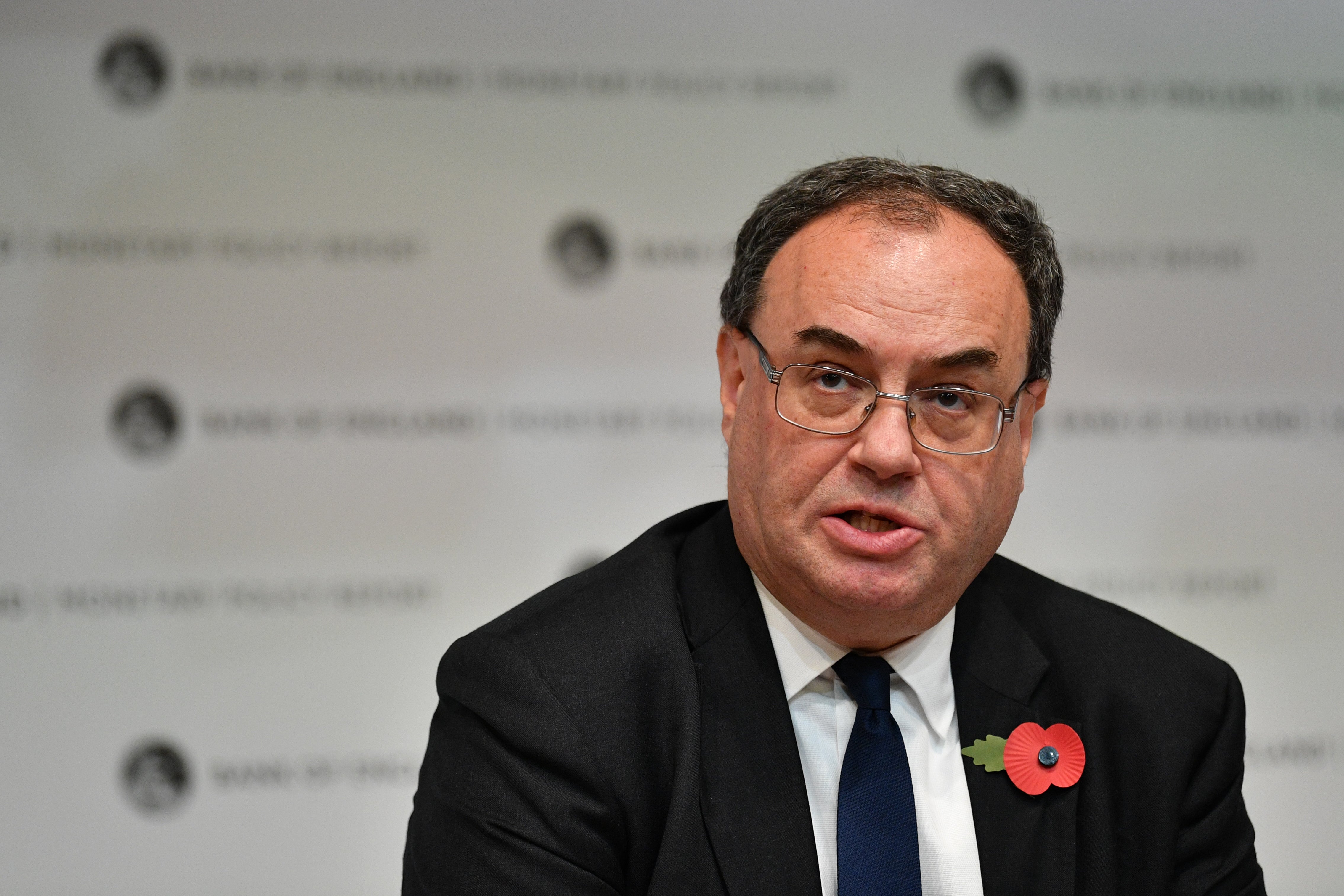Bank of England chief Andrew Bailey ‘very uneasy’ over rising inflation
It came as members of the Bank of England’s Monetary Policy Committee explained their decision to hold rates earlier this month.

Your support helps us to tell the story
From reproductive rights to climate change to Big Tech, The Independent is on the ground when the story is developing. Whether it's investigating the financials of Elon Musk's pro-Trump PAC or producing our latest documentary, 'The A Word', which shines a light on the American women fighting for reproductive rights, we know how important it is to parse out the facts from the messaging.
At such a critical moment in US history, we need reporters on the ground. Your donation allows us to keep sending journalists to speak to both sides of the story.
The Independent is trusted by Americans across the entire political spectrum. And unlike many other quality news outlets, we choose not to lock Americans out of our reporting and analysis with paywalls. We believe quality journalism should be available to everyone, paid for by those who can afford it.
Your support makes all the difference.Governor of the Bank of England Andrew Bailey has admitted he is “very uneasy” about spiking inflation across the economy.
It came as the central bank boss and two other rate-setters on the Bank’s Monetary Policy Committee (MPC), Catherine Mann and Michael Saunders explained their decision to hold interest rates as 0.1% earlier this month.
Members of the nine-strong MPC voted by seven-to-two in favour of keeping rates unchanged at 0.1%.
Two members, which included Mr Saunders, were outvoted in calling for a rise to 0.25%
Speaking to MPs Mr Bailey said the decision to maintain rates was a “very close call” but stressed that he had never said the Bank would raise rates at the meeting, after the financial markets reacted poorly to the decision to hold.
“As a point of guidance, in terms of emphasising the primacy of the inflation target and the link to medium-term inflation expectations, I thought it was critical that we put our foot down at that point,” he said.
“I am concerned that there is a view in some quarters that we’ve gone off that and just sort of never admitted it. It’s not true.”
It is not of course where we wanted to be, to have inflation above target
Nevertheless, Mr Bailey also told MPs that there are concerns about the current inflationary picture and that inflation is significantly above its target rate of 2%.
“I’m very uneasy about the inflation situation – I want to be very clear on that.
“It is not of course where we wanted to be, to have inflation above target.”
The latest Consumer Price Index inflation rate dipped to 3.1% for September, according to the Office for National Statistics.
However, after its latest meeting the Bank warned higher energy prices would see inflation leap to 4.5% soon and hit around 5% next April, the highest level for a decade.
Mr Saunders said that he voted for a rate rise due to the tight labour market and signs there has been a pick-up in wage growth but shrugged off comparisons to the 1970s.
“There is no risk of a wage price spiral in the UK,” he told MPs.
“Talk of a return to the 1970s is completely misplaced. The economy has changed in many ways since then.
“Having said that, the labour market is tight, with widespread skills shortages and we’ve seen the average pace of pay growth pick up to a little bit above the pre-pandemic pace and pay growth for new hires is picking up.
“I felt, given that evidence, that the likelihood of a pick-up in the general pace of pay growth was sufficiently high that we should start now to withdraw some of the stimulus that was put in place.”